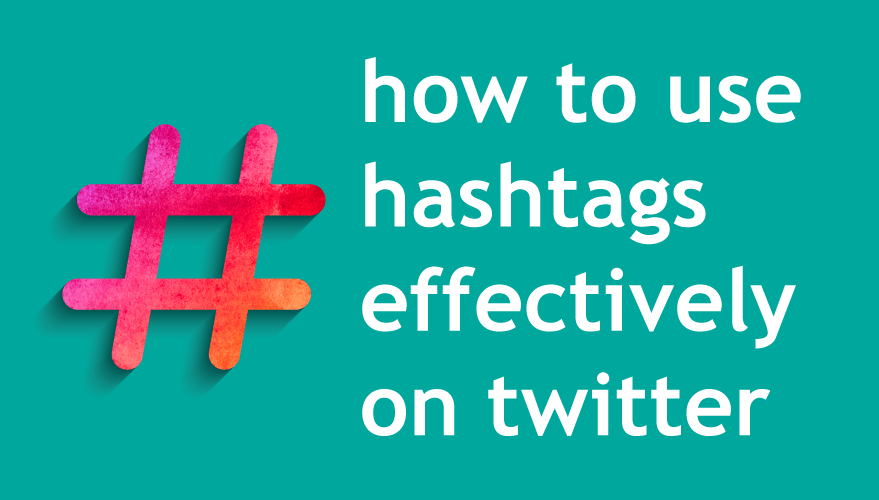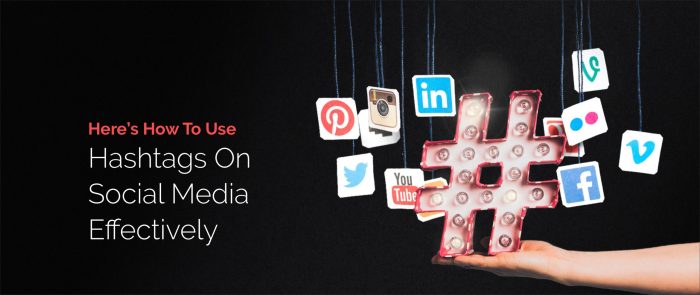Kicking off with Using Hashtags Effectively, this guide is all about getting the most out of those pound sign tags. From boosting your online presence to increasing engagement, we’ve got you covered with the ultimate hashtag how-to.
From understanding the basics to mastering the art of hashtag research, this is your go-to resource for taking your social media game to the next level.
Understanding Hashtags

Hashtags are a way to categorize content on social media platforms by using the pound or hash symbol (#) followed by a word or phrase. They serve the purpose of making posts searchable and allowing users to find related content easily.Using hashtags effectively can increase the visibility of your posts, attract a larger audience, and help you connect with like-minded individuals.
By using popular and relevant hashtags, you can reach a wider audience beyond your followers and increase engagement on your posts.
Benefits of Using Hashtags Effectively
- Expand reach: Hashtags make your posts discoverable to users who are searching for or following that specific hashtag.
- Boost engagement: Using popular hashtags can increase likes, comments, and shares on your posts.
- Build community: Hashtags allow you to connect with people who share similar interests or are discussing the same topics.
- Increase brand visibility: Consistent use of branded hashtags can help promote your brand and create brand recognition among users.
Popular Hashtags on Different Platforms
- Instagram: #instagood, #photooftheday, #love
- Twitter: #tbt (Throwback Thursday), #MondayMotivation, #BlackLivesMatter
- Facebook: #ThrowbackThursday, #FlashbackFriday, #MotivationMonday
- TikTok: #fyp (For You Page), #duet, #viral
Types of Hashtags
Hashtags play a crucial role in social media marketing, helping to increase visibility and engagement on various platforms. Understanding the different types of hashtags can help businesses effectively reach their target audience and achieve their marketing goals.
Trending Hashtags vs. Branded Hashtags
Trending hashtags are topics or phrases that are currently popular on social media platforms. They are often related to current events, holidays, or viral content. Using trending hashtags can help businesses tap into the ongoing conversations and increase their visibility to a wider audience. On the other hand, branded hashtags are unique to a specific brand or campaign. They are created to promote brand awareness, encourage user-generated content, and engage with the audience on a deeper level.
Branded hashtags should be catchy, relevant, and easy to remember to ensure they resonate with the target audience.
Significance of Niche-Specific Hashtags
Niche-specific hashtags are tailored to a particular industry, interest, or community. Using niche-specific hashtags can help businesses target a more specific audience that is interested in their products or services. By using hashtags that are relevant to their niche, businesses can increase their visibility to potential customers who are actively searching for related content. Niche-specific hashtags also help businesses establish themselves as experts in their field and build a loyal following within their target market.
Examples of Successful Hashtag Campaigns
#ShareACoke by Coca-Cola
Coca-Cola’s “Share a Coke” campaign encouraged consumers to share photos of personalized Coke bottles with their names on social media using the hashtag #ShareACoke. The campaign generated a significant amount of user-generated content and engagement, helping Coca-Cola increase brand awareness and sales.
#LikeAGirl by Always
Always’ “Like a Girl” campaign aimed to empower young girls and challenge stereotypes associated with the phrase “like a girl.” The campaign encouraged users to share their stories and photos using the hashtag #LikeAGirl, sparking a conversation around gender equality and empowering women and girls worldwide.
#IceBucketChallenge by ALS Association
The ALS Ice Bucket Challenge went viral on social media, with participants dumping buckets of ice water over their heads to raise awareness and funds for ALS research. The campaign used the hashtag #IceBucketChallenge to encourage participation and donations, leading to a significant increase in donations and public awareness of the disease.
Best Practices for Using Hashtags: Using Hashtags Effectively

Using hashtags effectively can significantly boost your social media presence. Here are some best practices to consider when incorporating hashtags into your posts.
Optimal Number of Hashtags
- It is recommended to use between 5-10 hashtags per post on platforms like Instagram and Twitter. Using too few hashtags may limit your reach, while using too many can come across as spammy.
- Experiment with different numbers of hashtags to see what works best for your content and audience.
Researching and Choosing Relevant Hashtags, Using Hashtags Effectively
- Research popular hashtags in your niche or industry by exploring trending topics and checking out what hashtags influencers are using.
- Use tools like Hashtagify or RiteTag to discover related hashtags and their popularity.
- Choose hashtags that are relevant to your content and audience to increase visibility and engagement.
Importance of Creating Unique Hashtags
- Creating unique hashtags can help you stand out from the crowd and establish your brand identity.
- Unique hashtags can also encourage user-generated content and create a sense of community around your brand or campaign.
- Make sure your unique hashtags are easy to remember, spell, and relevant to your brand or content.
Tools for Hashtag Management
Managing hashtags effectively requires the use of various tools to track performance, optimize strategies, and streamline the process. Here are some popular tools that can help in hashtag management:
1. Hashtag Tracking Tools
- Sprout Social: This tool provides detailed analytics on hashtag performance, including reach, engagement, and top-performing hashtags.
- Keyhole: Keyhole allows users to track hashtags in real-time, monitor conversations, and identify influencers using specific hashtags.
- Hashtagify: Hashtagify helps users discover trending hashtags, analyze competition, and track hashtag performance over time.
2. Analytics Tools for Optimization
- Google Analytics: By tracking hashtag performance alongside other metrics, Google Analytics can help optimize hashtag strategies for better engagement and reach.
- Buffer Analyze: This tool offers insights into hashtag performance, audience demographics, and engagement metrics to refine hashtag use effectively.
- Brand24: Brand24 provides real-time data on hashtag mentions, sentiment analysis, and competitor insights to enhance hashtag strategies.
3. Role of Scheduling Tools
- Hootsuite: Scheduling tools like Hootsuite allow users to plan and schedule posts with specific hashtags, ensuring consistent use and optimal timing for maximum impact.
- Buffer: Buffer’s scheduling feature enables users to plan hashtag campaigns in advance, analyze performance, and adjust strategies for better results.
- Sprout Social: In addition to tracking, Sprout Social offers scheduling capabilities to manage hashtag campaigns efficiently and maintain a consistent social media presence.
